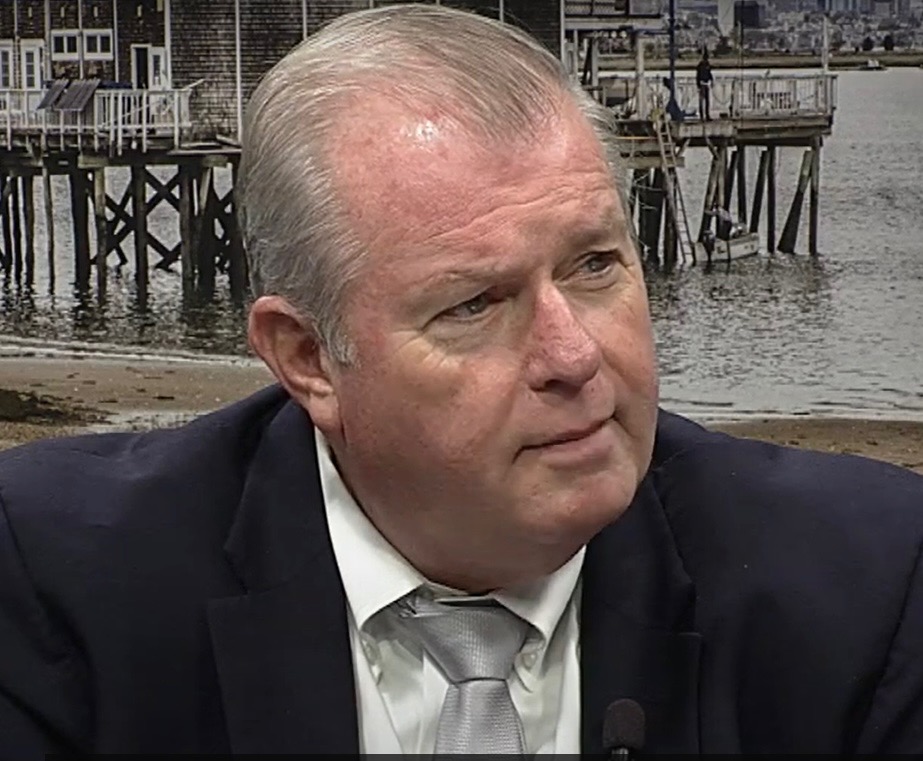
Audit on how steak tip-craving, indicted Quincy official stole thousands nears completion
A months-long independent forensic audit into how Quincy’s former elder services director embezzled tens of thousands in taxpayer dollars on personal gifts, including over 100 pounds of bourbon steak tips, is nearing completion.
Chris Walker, the mayor’s chief of staff, has said an outside auditor the city brought on after learning about the startling revelations into long-time employee Thomas F. Clasby, Jr.’s, conduct last spring has “some draft material” ready. Officials need clearance from the U.S. Attorney’s Office on what can be discussed with the City Council and in public.
The feds indicted Clasby, 60, of Fitchburg, on embezzlement, mail and wire fraud, and interstate transportation of stolen property charges earlier this month. He pleaded not guilty to each charge in federal court and was released on personal recognizance.
“In some ways, despite this being very troubling, unacceptable in a lot of ways, and personally difficult for a number of people involved in the city,” Walker told the City Council last week, “there’s a good story here, and it’s how the city has handled this to date.”
Clasby, who earned just under $112,000 in 2023, had served as Quincy’s elder services director since 1997 before Walker said an “internal source” in the elder services office alerted the mayor’s office last spring that “there perhaps was something amiss.”
“Within a day or two, we had fleshed out enough, brought it to the mayor’s attention,” Walker said, “and at that point, immediately buttons were pushed.”
Mayor Tom Koch placed Clasby on leave last April 19, according to the Patriot Ledger, shutting down Clasby’s passwords and computer access, while the forensic audit commenced. Weeks later, in May, the mayor fired the long-time employee who oversaw senior services at the Kennedy Center.
A few months later, the outside auditor provided “mounds and mounds” of paperwork to the feds to move the case forward, Walker said.
What is known so far in the case is “utterly disgraceful,” FBI Boston Special Agent in Charge Jodi Cohen said in a statement on Jan. 8, the day the feds indicted Clasby. Cohen accused Clasby of using the city’s coffers as his “own personal slush fund.”
In the stifling indictment, Clasby is revealed as allegedly arranging for the city to pay more than $38,000 to a New York consulting company that his friend owned, but the company never provided goods or services to the city.
Clasby’s friend allegedly cashed the city checks and provided Clasby the cash at a Framingham rest stop, a ferry terminal in Bridgeport, Conn., and the friend’s New York apartment.
Clasby’s spending spree with taxpayer money began in 2019 when he was accused of using the city’s purchasing process to pay personal expenses and generate cash for the good of himself and those closest to him, the indictment alleges.
Then, beginning in June 2021, Clasby stole “the vast majority of cash receipts generated by Elder Services.”
Some of Clasby’s luxurious expenditures he racked up from taxpayer money include $8,950 to a music studio to produce recordings of him singing songs, $2,236 to food service vendors for 153 pounds of bourbon steak tips; $4,800 for a Toyota Prius; and $1,658 for a signature, lacquered, mounted, and framed self-portrait.
Walker highlighted how the forensic audit will reveal what controls the city has in place and what else is needed to prevent further abuse. Relative to the cash transactions, officials have already implemented new measures, he said. He did not describe what those tools may be.
Walker said a “triggered mechanism” took Clasby’s theft spree to the “next level,” with the Kennedy Center conducting cash transactions on state guidelines and state law.
“It doesn’t make it any more acceptable, and it doesn’t mean that we don’t take a look at these things,” Walker said, “but you will hear it from time to time, when someone or some entity is intent on committing fraud, committing theft, the controls aren’t always going to stop that.”
Walker offered the developments after City Council President Ian Cain presented an order resolution for officials to conduct a “comprehensive review of the city’s purchasing and accounting processes … to identify … gaps that may allow for misuse of public funds.”


